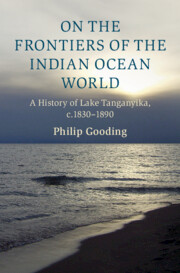
- Cited by 6
-
Cited byCrossref Citations
This Book has been cited by the following publications. This list is generated based on data provided by Crossref.
Nicolini, Beatrice 2022. Migration Patterns and Economic Interconnections in the Indian Ocean during the Nineteenth Century. Cadernos de Estudos Africanos, Vol. 43, Issue. , p. 95.
Irving, Sarah 2023. "Indian Lady Tourists Killed at Jericho": Tourism, Pilgrimage and South-South relations in Interwar Palestine. Mashriq & Mahjar: Journal of Middle East & North African Migration Studies, Vol. 10, Issue. 2,
AlMaazmi, Ahmed Yaqoub 2024. “I Authored This Book in the Absence of My Slave”: Enslaved East Africans and the Production of Occult Knowledge across the Omani Empire. Monsoon, Vol. 2, Issue. 2, p. 74.
Gooding, Philip Lazenby, Melissa J. Frogley, Michael R. Dai, Cecile and Su, Wenqi 2024. Documents, reanalysis, and global circulation models: a new method for reconstructing historical climate focusing on present-day inland Tanzania, 1856–1890. Climate of the Past, Vol. 20, Issue. 12, p. 2701.
Binju, Gargi 2024. Maps and the Burdens of Belonging: Identity and Resistance in Gurnah’s <em>By the Sea</em> and Owuor’s <em>The Dragonfly Sea</em>. Open Library of Humanities, Vol. 10, Issue. 2,
Respess, Amanda 2024. Global Ships.
- Publisher:
- Cambridge University Press
- Online publication date:
- July 2022
- Print publication year:
- 2022
- Online ISBN:
- 9781009122023
- Series:
- Cambridge Oceanic Histories


